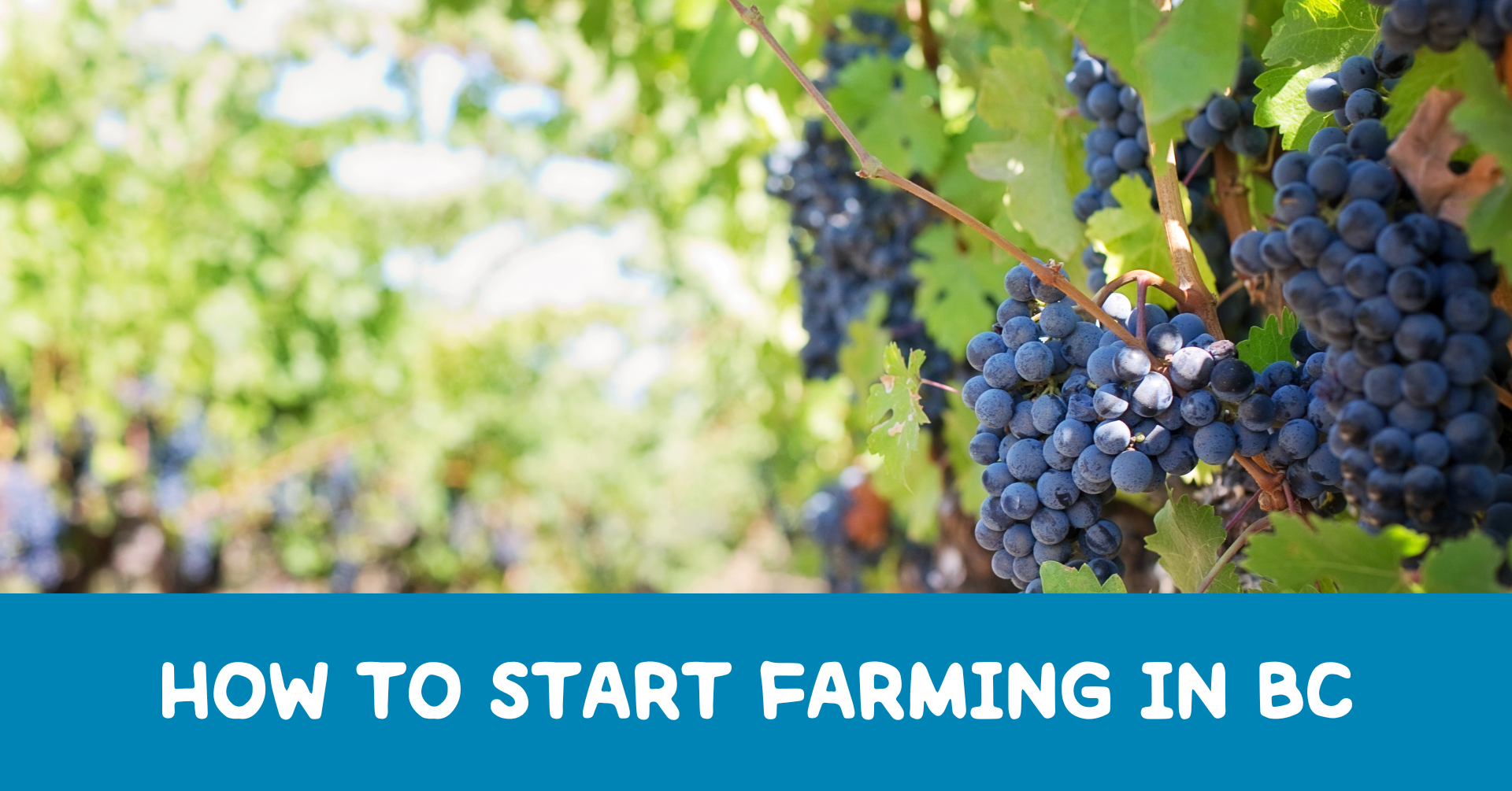How To Start Farming In British Columbia
A starter kit for those wondering how to start farming in British Columbia. Young Agrarians (YA) is a farmer to farmer educational resource network for new and young ecological, organic and regenerative farmers in Canada. Read more about us here.
Young Agrarians recognizes the unresolved Indigenous land title and rights in the diverse territories in what is today called Canada. As we live and work in the context of and in response to a colonial system of laws and policies, it is important to acknowledge the historical and ongoing impact of agriculture and land enclosure on Indigenous lands and food systems. In this context, we acknowledge our collective responsibility to bring forward the voices of Indigenous Peoples and their experiences with colonization so that we can work towards reconciliation that places ecology, land stewardship, and Indigenous land title and rights at the forefront.
As you are getting started, we invite you to learn about the historical and ongoing impact of agriculture and land enclosure on Indigenous lands and food systems. Here are some places to start:
-
- Indigenous Climate Action
- Indigenous Writes: A Guide to First Nations, Métis & Inuit Issues in Canada by Chelsea Vowel
- Indigenous Food Systems: Concepts, Cases, and Conversations. Edited by Priscilla Settee and Shailesh Shukla
- Farming in Canada: Who Else Do You Have to Thank by Kyla Pascal
- Miyo Mâmawi Atoskewin: Working together to Cultivate Soil Health on First Nations Lands (Presentation by Dr. Melissa Arcand at Organic Alberta’s 2021 Conference)
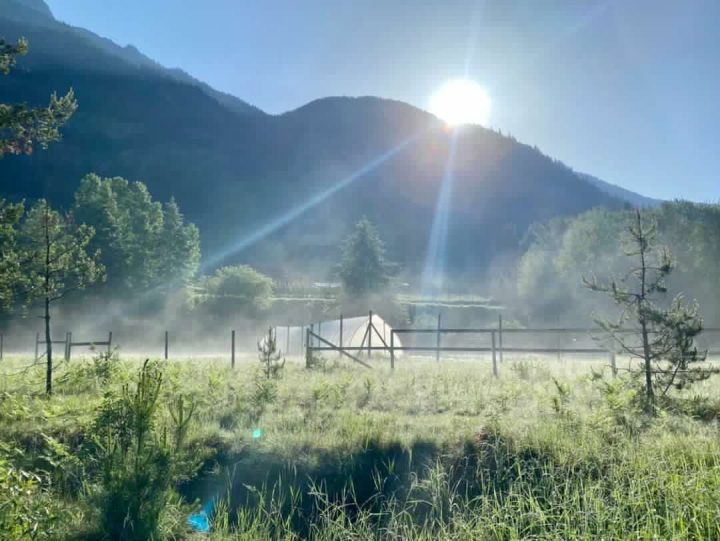
Photo credit: Mystic Valley Farm
STEP 1: FARMING STARTS WITH A (DAY)DREAM
Do you care about the environment and want to better the planet? Maybe you envision yourself selling fruits and veggies at your local farmer’s market? What about offering ethically-raised meat options in your community? Did you grow up in a farming community and want to get into farming yourself? Are you a foodie with a love for quality, local food? Or are you tired of your office job and want to spend more time outdoors? Regardless, you’re here. Let’s help you explore a career in regenerative farming.
It started with a daydream and now it’s time to go one step further – how do you turn that daydream into a reality? Our suggestion: homework. The realm of farming is vast and it requires research coupled with trial and error to figure out what fits for you.
Here are a few questions to get you started:
- What do you want to farm?
- Are you an animal person, a grain person, a vegetable person, a cut-flower person? Or have an affinity for something else?
- Do you like interacting with customers?
- Is your focus feeding your local community, families, or selling at grocery stores or restaurants?
- Do you like food-processing/value-added products?
- Do you have the discipline for dairy? The might for fieldwork? The patience for regulatory labyrinths? The stamina for farmers markets?
You might not immediately have the answers to these questions but what follows will hopefully help you to figure some of them out.
The realm of farming is very vast and it requires research coupled with trial and error to figure out what fits with you.
A great place to start is to find farms that inspire you. The Young Agrarians U-MAP is a great resource for finding farms nearby. If possible, try to arrange a farm visit with the farms you’re interested in to get a better understanding of their day-to-day life. Chat up the vendors at your local farmers’ market. Take on the opportunity to start making some farmer friends and begin honing in on what it is you love most about farming.
Still interested? Continue on!
STEP 2: GET YOUR HANDS DIRTY
The only real way to learn about farming in British Columbia is to get your hands dirty. REAL dirty! Learning from others who are more experienced is invaluable. We recommend volunteering for a farm, working seasonal farming jobs, or interning/apprenticing at a farm.
Some farms have structured educational programs while other farms may be more informal. Either way, you’ll likely be fully immersed in day-to-day activities and be building your skills as you go. Seasonal work is also a great option. A summer job on a farm might be a great fit or helping out a farm through calving or harvest. Check out the YA Apprenticeship Program, our Job Board, and our Facebook Groups.
Whatever route you pursue, gaining exposure to farming is key to knowing whether farming is for you in the long term.
There is so much learning that happens when you’re fully immersed in a farming operation. Whether it is a good or bad experience, it will contribute to your skills and knowledge and will inform how you choose to approach farming in the future. Maybe you like your tools organized a certain way, or like particular systems to feed animals, prefer to work markets or sell through a Community Supported Agriculture (CSA) model. Acquiring experience on a few different farms can help you understand whether you want to start a farm business, work on a farm, take over a farm, or anything in-between.
Learning from others who are more experienced is invaluable.
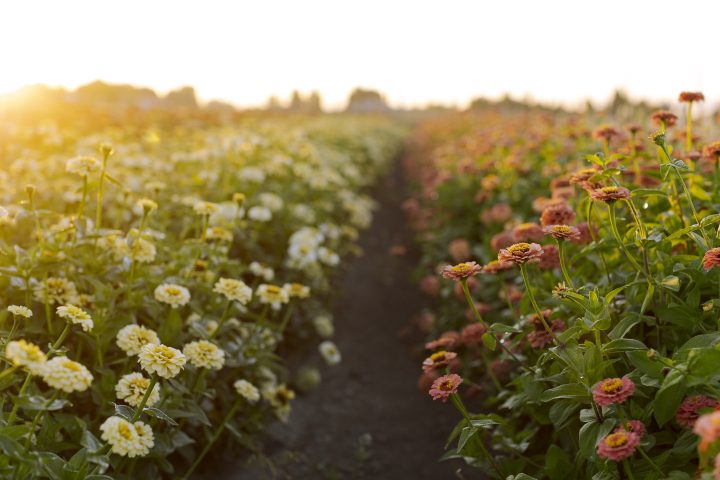
Photo Credit: Athiana Acres
Not quite ready or able to commit to learning on a farm full time? Here are a couple of places to start:
Community Gardens
Community Gardens are a great way to get first-hand experience with growing plants and connecting with your community. There are various types of community gardens including:
- Individual Plot Gardens where the space is divided into different sections and each individual is given a section to grow whichever crops they choose. Great for experienced individuals or people who want more autonomy with their plot.
- Group Gardens are one large garden that is shared amongst the group. These are great for small groups and are excellent for building community.
- Mixed Plot Gardens are a combination of the two above.
- School Gardens help children and youth learn about growing fruit and vegetables while integrating them with coursework.
Community Gardens in British Columbia:
- Burnaby
- Central Okanagan
- Cowichan
- Kelowna
- Langley
- Nanaimo
- Penticton
- Saanich
- Surrey
- Vancouver
- Vernon
- Victoria
Volunteer
Volunteering is a great way to start and many farmers appreciate an extra set of hands, even if you only have time in the evenings or weekends. As a bonus, a lot of volunteer-led farms allow volunteers to take home some produce. One well-known organization that posts farm volunteer opportunities is WWOOF which stands for Worldwide Opportunities on Organic Farms, where “in return for volunteer help, WWOOF hosts offer food, accommodation and opportunities to learn about organic lifestyles.”

Photo credit: Ice Cap Organics
Volunteer Opportunities on Our Radar:
- Edible Garden Project (North Vancouver)
- UBC Farm (Vancouver)
- Farmers on 57th (Vancouver)
- FED Urban Ag (Victoria)
- Compost Education Centre (Victoria)
- Lifecycles (Victoria)
- Royal Roads University (Victoria)
- Sandown Centre (North Saanich)
- Haliburton Farm (Saanich)
- Ntamtqen Community Garden (Cawston)
STEP 3: LEARN, RE-LEARN, AND GROW YOUR FARMING NETWORK!
If you’ve reached this stage, you’ve gained some hands-on farming experience and have narrowed down some options of what you want to do. But as you have most likely experienced by now, farming is a continuous learning process. There are so many approaches to farming and every decision is context-specific – it’s important to figure out which practices you want to take on in alignment with your personal values and time.
There are several educational programs available in British Columbia that offer further learning in farming and horticulture.
Education:
- UBC Farm Practicum in Sustainable Agriculture – The UBC Farm Practicum in Sustainable Agriculture is an experiential learning program that provides an introduction to small-scale organic mixed vegetable farming for sale through direct markets. It is designed for aspiring farmers and community food growers, as well as those seeking to deepen their understanding of the food system and the pursuit of food sovereignty.
- Kwantlen Polytechnic University Bachelor of Applied Science in Sustainable Agriculture – KPU is home to the only agriculture program in Canada whose 4-year degree curriculum focuses on organic production. Your journey starts with the fundamentals, such as math, biology, chemistry, and geography, as well as concepts in sustainable agriculture and food systems.
- Thompson Rivers University Regenerative Agriculture Certificate or Diploma – The Regenerative Agriculture program is a 63 credit program, the first of its kind in British Columbia. This program allows you to gain practical experience on farms or ranches of your choice, learning hands on skills for the enterprises you are interested in pursuing. From beef and sheep production to pasture poultry or pork as well as greenhouse vegetable, fruit and berry enterprises — the program has host farms for you.
- University of the Fraser Valley Bachelor in Agricultural Science – UFV’s four-year Bachelor of Agricultural Science with a Horticulture major provides a mix of technical, communication, and business courses.
- University of Vancouver Island Agriculture Micro-Credential Certificate – Developed with regional colleges and universities in BC, these agriculture courses delve into sustainable, regenerative and agro-ecological farming.
It’s important to figure out which practices you want to take on in alignment with your personal values and time.
GROW YOUR NETWORK
To be a successful farmer, having a strong network is vital to your success and this is a never-ending process. It can be helpful to build your community before you build a farm. Having a strong network is beneficial to your career as a farmer because it can help with:
- Peer-to-peer support
- Intergenerational learning
- Accessing land
- Obtaining equipment or help
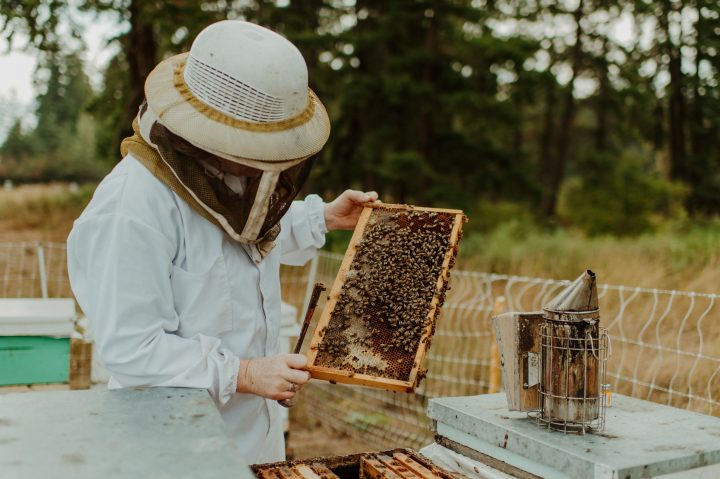
Photo credit: Wild Antho
How do you grow your network? It started with Step 1 when we spoke about talking to farmers in your area. Join local online or in-person communities where you can find others who share the same interests as you. Find a farm friend (or many farm friends)! Be a regular at the farmers’ market. Ask your questions to those in YA Facebook Groups. Attend networking events and go to on-farm visits. Hint hint: Follow Young Agrarians on social media, join the Young Agrarian newsletter, and check our website frequently for upcoming learning and networking opportunities!
It’s the same concept as all your other interests. If you like reading you will probably go to the library lots and potentially join a book club. And if you want to get into farming you will start to visit more farms and join a farm club (yes, that’s a thing!). Reach out to people and keep trying. You might be surprised at what knowledge others want to offer!
Events provide opportunities to meet like-minded folks:
- Young Agrarians Mixers, Farm Tours, Workshops, and more!
- Organic BC Conference
- BC Young Farmers Farm Fest
- South Island Farmers Institute Farmer to Farmer events
- Islands Agricultural Show
- BC Farmers Market Conference
- Small Scale Meat Producers Association workshops
- FarmFolk CityFolk events
- UBC Farm learning and community-building events
STEP 4, 5, 6, 7, 8…IT DOESN’T STOP HERE
Farming isn’t going to happen overnight and it takes a lot of commitment. This is where your networks come in handy. Ask your peers for help when you need it and reciprocate the favour. If you feel a bit lost, go back a couple steps and learn through experience at other farms and/or further education.
Thanks for reading our guide on How to Start Farming in British Columbia. When you’re ready for the next steps, take a look into other YA resources including the:
- How to Start Farming: And Introductory Course for the Farm Curious – This online course will give you the space to explore farming fundamentals, connect with the farming community, and learn about ways to get more involved in farming.
- Business Bootcamp for New Farmers – This online, community-based program will give you the space and skills to write a stellar business plan for the farm of your dreams.
You’ve got this, and remember that we are all in it together!
Do you know of any other resources that might benefit readers of this How to Start Farming in British Columbia guide? Email network@youngagrarians.org.
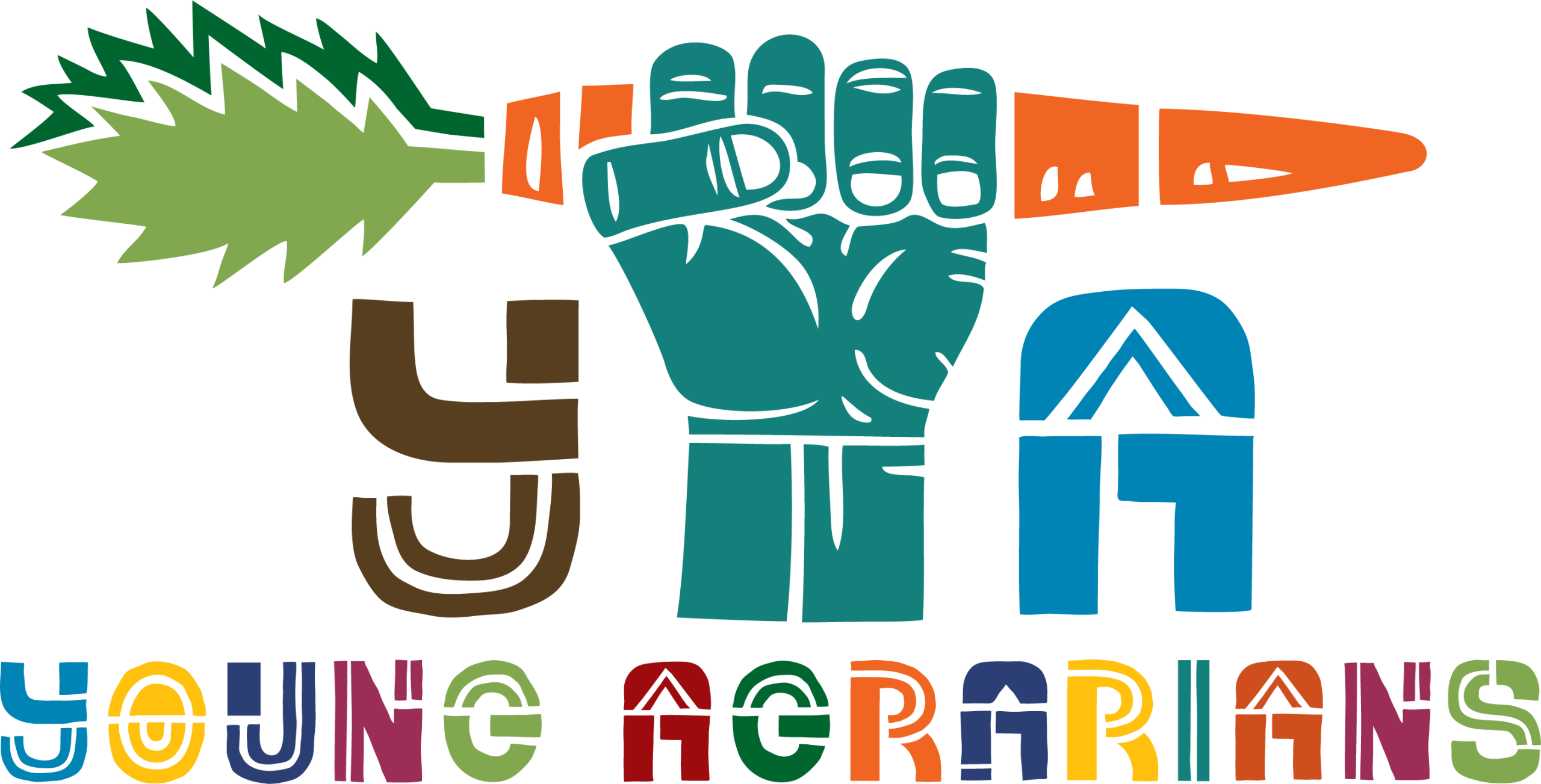

 Filter by Popular Categories
Filter by Popular Categories